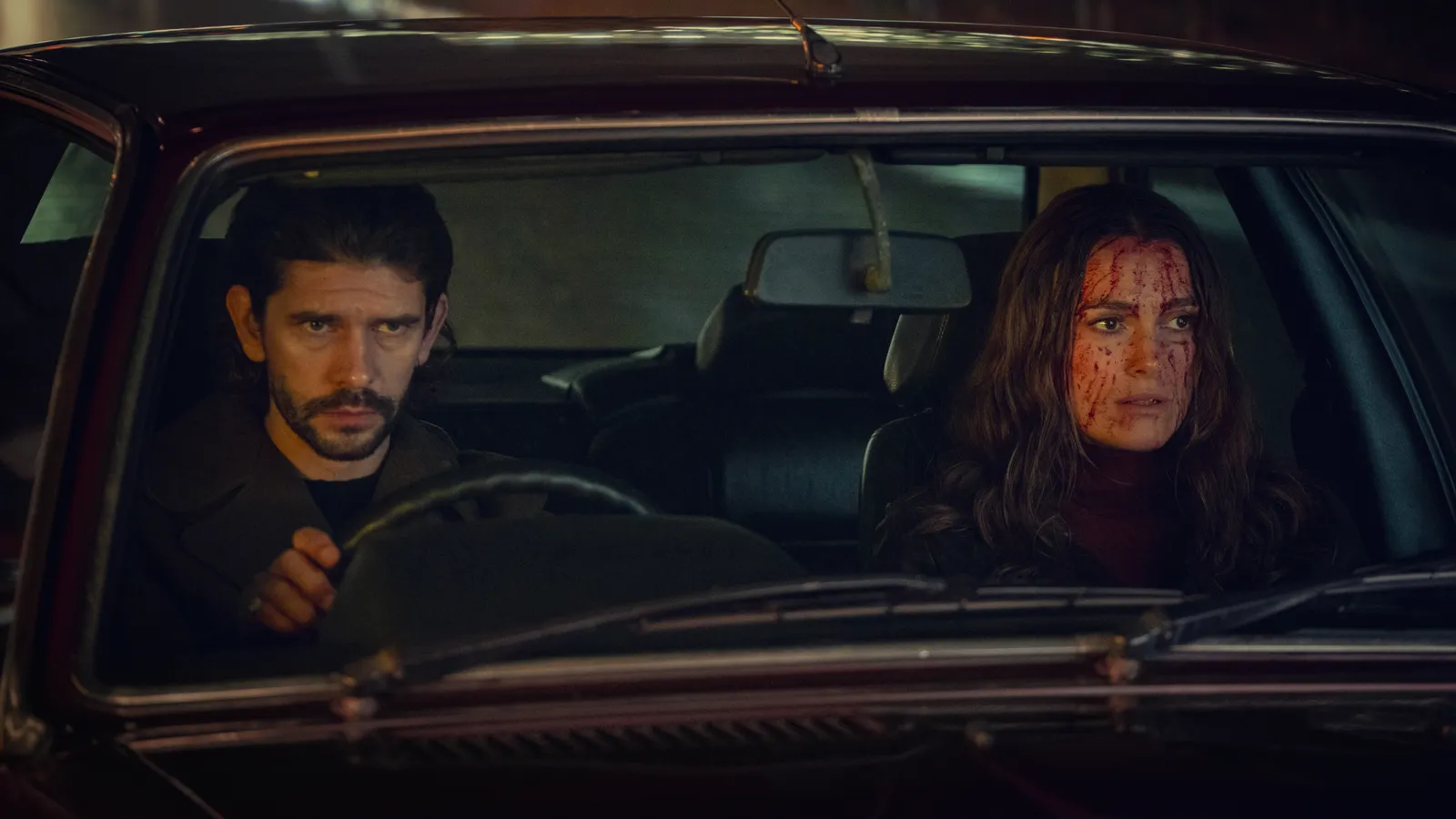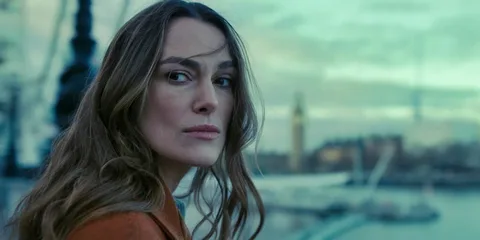In the current streaming landscape, audiences have grown accustomed to a certain kind of espionage story. These narratives often follow intelligence operatives who balance their deadly missions with mundane, even humorous, personal quirks. The trope is familiar: a hitman with a grocery list, a spy worried about a school pickup. While initially novel, this conceit has worn thin through repetition, turning once-groundbreaking characters into formulaic clichés.
Enter Black Doves, a six-episode Netflix limited series created by Joe Barton. Premiering on December 5, the show promised yet another stylish, London-set thriller centered on secrets, lies, and high-stakes subterfuge. But against expectations, Black Doves delivers something genuinely refreshing—a compelling human story cloaked in the genre’s trappings, with emotionally resonant characters and thematic richness that set it apart from its contemporaries.
Reimagining Archetypes: Characters with Depth and Difference
A Queer Male Assassin with Real Emotional Stakes
At the heart of Black Doves is Sam, played with measured vulnerability and wit by Ben Whishaw. Sam is a professional assassin whose soft-spoken demeanor and introspective nature defy expectations. He’s no cold-blooded killing machine; instead, he’s a man in mourning, carrying the emotional weight of a long-ended romantic relationship that still haunts him.
Sam’s queerness isn’t treated as a novelty or as subtext—it’s central to his identity and decisions. That in itself is unusual in this genre, which has long prioritized the stoic masculinity of Bond or Bourne-type figures. Here, Sam is emotional, caring, and affected by the chaos around him. His queerness doesn’t just humanize him—it reshapes what the archetype of a spy can be.
A Spy and a Mother: Keira Knightley’s Helen
Opposite Whishaw, Keira Knightley plays Helen, a mother and wife living a picture-perfect bourgeois life in London. She’s cultured, impeccably dressed, and impeccably positioned within polite society. But beneath the refined veneer lies a double life. Helen is a mole for an off-the-books espionage outfit, risking everything for reasons that gradually unfold over the course of the series.
Helen’s character is refreshingly complex. She’s not just playing at duplicity—she embodies it, seamlessly navigating her roles as caregiver, partner, and covert operative. Her motivations are grounded in love, frustration, and a need to reclaim agency in a life that often feels staged. Knightley brings a delicate strength to the role, allowing us to believe in Helen’s conflicting selves.
A Dynamic We Rarely See on Screen
What makes Sam and Helen particularly compelling is not their individual stories, but their shared relationship. The show centers on a gay man and a straight woman who are best friends—an intimate, real-world dynamic that rarely gets serious screen time in espionage dramas. Their relationship is affectionate, co-dependent, and filled with layered emotional history.
Rather than relying on the stale will-they-won’t-they romantic tension that plagues so many thrillers, Black Doves invests in this platonic, yet deeply loving friendship. Their banter is witty but heartfelt; their loyalty is fierce but tested. It’s one of the show’s strongest achievements.
A Distinctive Tonal Balance: Violence, Humor, and Heart
The Humor of Absurdity in Violence
Black Doves contains its fair share of gunplay, chase scenes, and stabbings—but what sets it apart is the way it stages violence. Barton directs death scenes with an almost casual flair. Killings happen suddenly, sometimes comically, and often in settings that would seem antithetical to bloodshed: dinner parties, cozy flats, tastefully minimalist offices.
This absurdist treatment of violence helps the show sidestep the grimdark aesthetic of shows like The Night Agent or Bodyguard. Instead, it echoes the dark humor of Killing Eve—but with a sensibility all its own. The deaths matter. They carry emotional and narrative weight, even when they occur with deadpan suddenness.
Keeping the Audience Emotionally Grounded
What allows Black Doves to oscillate between brutality and levity without tonal whiplash is its careful character work. We’re given the space to sit with the emotional consequences of death and betrayal. When characters die, their absence is felt. The show doesn’t move on with convenient amnesia—it lingers, mourns, and metabolizes its own narrative stakes.
Supporting Cast and Subplots: A Gallery of Intrigue
Sarah Lancashire’s Commanding Reed
One of the show’s standout performances comes from Sarah Lancashire as Reed, Sam and Helen’s handler. Lancashire brings elegance, menace, and gravitas to the role—a sophisticated puppet master who exudes both maternal affection and cold pragmatism. Reed is a fascinating paradox: she clearly cares for her operatives, yet she never lets sentiment interfere with mission objectives.
The ambiguity of Reed’s loyalty adds a layer of suspense to every scene she’s in. Is she a protector or a predator? A mentor or a manipulator? Lancashire plays her cards close to the chest, and the show is better for it.
Quirky Characters with Sharp Edges
Beyond the central trio, Black Doves populates its world with colorful and morally ambiguous figures. Kathryn Hunter plays a veteran spymaster-type who seems equal parts assassin and eccentric aunt. She adds a theatrical, almost Shakespearean energy to the proceedings.
Meanwhile, Ella Lily Hyland delights as a young contract killer with too much energy and not enough impulse control. Her character might initially appear as a trope lifted from John Wick, but Hyland gives her enough idiosyncratic charm to feel like a fresh take on the young-and-ruthless assassin.
Each supporting character serves a function, but more importantly, each feels lived-in and idiosyncratic. This is not a show populated by stock types, even if they’re inspired by them. Barton’s writing gives them quirks, contradictions, and moments of humanity that complicate their roles.
A Queer Sensibility and Stylish Setting
Queerness as Lens and Logic
There’s a palpable queer sensibility running through Black Doves, not just in Sam’s character, but in the show’s tonal decisions, aesthetics, and subtext. Barton doesn’t just include queer characters—he builds the entire series around a way of seeing the world that feels different from the conventional macho gaze of espionage fiction.
This manifests in subtle ways: in the soft lighting and lush interiors; in the prioritization of friendship over heterosexual romance; in the show’s wit, melancholia, and celebration of chosen families. It feels like Black Doves is speaking to an audience that doesn’t usually see itself centered in spy thrillers.
London as a Character
The setting of Black Doves is not incidental—it’s integral. The series unfolds across a London that’s both glamorous and gritty, posh and post-industrial. Holiday lights flicker in upscale neighborhoods while conspiracies unfold in warehouse basements. This duality mirrors the show’s central themes: hidden identities, surface versus substance, beauty concealing danger.
London at Christmastime gives the series a visual charm that contrasts brilliantly with its darker elements. The aesthetics are bohemian and lived-in, rather than slick and sterile. It’s a welcome departure from the sleek, high-tech look of most modern spy shows.
Narrative Liberties and Genre Conventions
Willing Suspension of Disbelief
Like any stylized genre piece, Black Doves asks for a degree of suspended disbelief. Would a character like Sam truly be given a second chance with a former lover after certain truths come out? Would London’s upper crust really be this accepting of deadly espionage crashing into their dinner parties?
Perhaps not. But the show doesn’t ask us to believe in realism—it asks us to believe in emotional truth. The drama is less about geopolitics than about relationships, regrets, and the costs of a double life. Within that framework, the show’s stylized approach feels justified, even liberating.
A Brief but Impactful Story
One of the most refreshing aspects of Black Doves is its brevity. With only six episodes, the series feels more like a novel than an ongoing soap. It’s tightly plotted, well-paced, and free of filler. Barton tells a complete story—one that could stand alone or set the stage for a second season.
In an era where prestige dramas stretch themselves over bloated episode counts and sprawling subplots, Black Doves demonstrates the power of narrative economy. Every moment counts. Every scene builds character or advances plot. It’s elegant, efficient storytelling.
Conclusion: A Fresh Blueprint for Spy Drama
Black Doves succeeds by reimagining what a spy story can be. Instead of trying to outmatch the bombast of global franchises like Mission: Impossible or Jack Ryan, it turns inward, choosing intimacy over spectacle and character over chaos.
Joe Barton’s series isn’t just a twist on the genre—it’s a quietly radical reinvention. By centering marginalized identities, honoring platonic intimacy, and embracing tonal fluidity, Black Doves makes the spy story feel relevant, romantic, and very much alive.
If you’ve grown tired of formulaic thrillers with invincible men and disposable women, this is the antidote. And at only six episodes, it’s a swift, stylish journey worth taking—one that might even leave you hoping for another covert mission with Sam and Helen. Maybe somewhere sunny next time.






